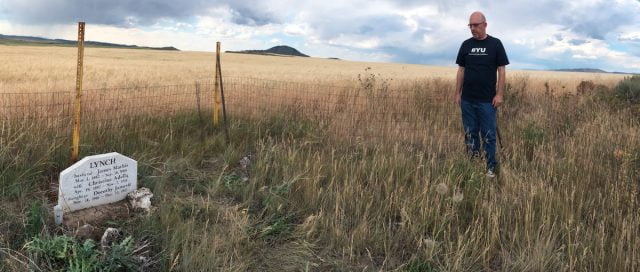Disclaimer: Originally published in August 2018. It is being republished since it still remains an interesting topic till today.
With tourism turning out to be an important industry in this modern age, a new breed of traveler focused on uncovering their family records by searching through repositories of births, deaths, and marriages has been on the rise.
Guess what? This new form of travel lets you see where your ancestors lived allowing you to physically experience aspects of their lives firsthand.

What Is Genealogy Tourism?
Also called roots tourism, Genealogy tourism refers to the form of travel that people undertake in order to trace their family lineage or hunt for their ancestors, taking them to places of their ancestral origin.
Being popular especially in places that have witnessed mass emigration, travel companies such as Ancestry.com, FamilySearch.org or Genes Reunited are picking up on this new trend offering specialized packages.
The country’s national archives can prove to be the starting point before digging up your ancestral knowledge with names, deaths, marriage certificates, immigration, electoral polls as well as towns of origin.
As a matter of fact, people didn’t travel much generally before the latter half of the 20th century which makes it easier to flag names to places.
Genealogy Tourism Offers A Sense Of Discovery By Allowing You To Step Back In Time
A trip down the memory lane can be different from the bubble-like environment of theme parks, all-inclusive resorts, showy tourist attractions, and cruises as it offers a more authentic and real-life experience.
A 31-year-old-man, Asher Charles Wesley who hails from Coimbatore set out to find about his paternal grandfather taking off to Sri Lanka on this unscripted journey.
He didn’t have resources except for a single clue given by his father stating the location of his grandfather’s shop between the railway station and Hemachandra Transport Corporation in Central Province, Sri Lanka.
After several conversations with random strangers and numerous calls, he was in tears when he met up a Mrs. N who knew his grandfather well as she frequented his shop.
When this unknown hero spoke about his grandfather being calm and donning a beard in his last days, he was taken by this immersive experience that connects you to people in a way that is a level beyond what mere reports or documents can take you.
Another ethereal experience was a family’s trip from Salt Lake City in Utah to Switzerland scouring through records going back to the 1400s and discovering the first person with the family’s surname.
They ended up organizing a small reunion meeting and greeting many distant cousins upon further examination of the charts and family trees.
This is what Kylie Bennet had to say in his 30-year-old genealogy career after connecting a family by charting over 600 years,
“The hands-on, physical experience is what’s most appealing. It takes it to another level when you can go and physically experience and be in the space where those things that we’re talking about in your family book or documents actually happened or where your ancestors actually lived.”
How Is Genealogy Tourism Becoming A Growing Industry?
It’s fair to say that genealogy tourism can be an obvious incentive when planning a vacation as it offers a neat reason to travel for a purpose. Popular TV shows such as Who Do You Think You Are has spurred people to yearn for the stories of their ancestors instead of plainly marking off names on the pedigree chart.
Researching family trees has become a lot easier with accessible web services along with the digitization of human records.
With the digitization of personal data such as birth, marriage and death records and nominal genetic testing, Ancestry.com has sold more than 10 million DNA test kits since its launch in 1983.
An average person can send in a saliva sample for $100 and receive an estimate about his ethnicity including the names of people matching his DNA within four to six weeks.
Sources: The Hindu, Deseret News Faith, BBC Travel
Image Credits: Google Images